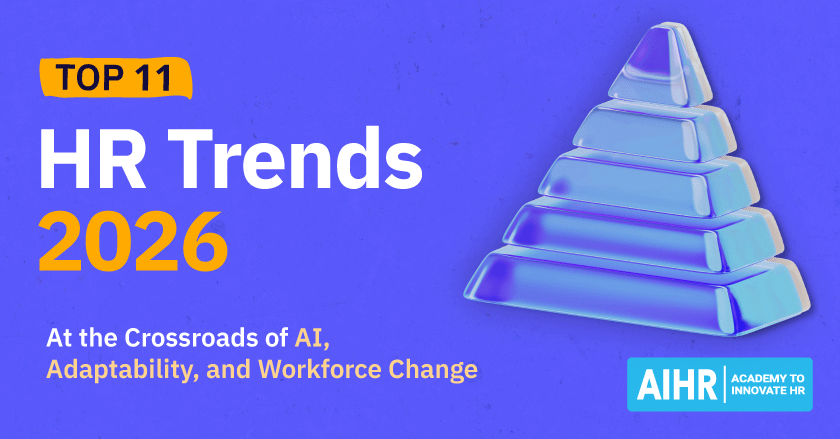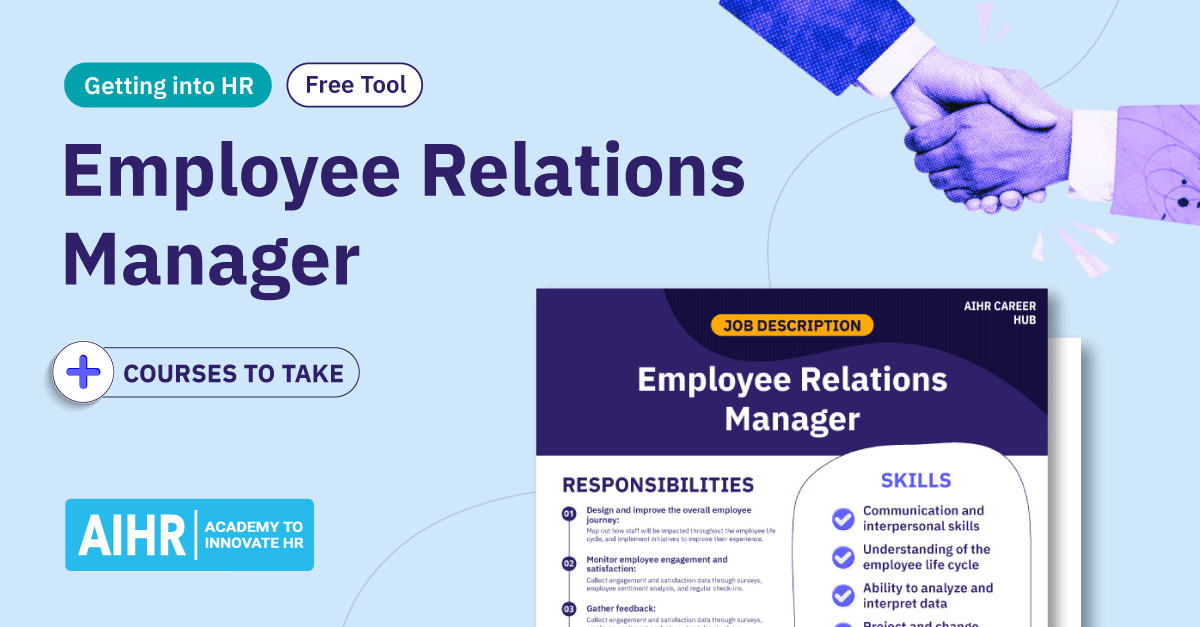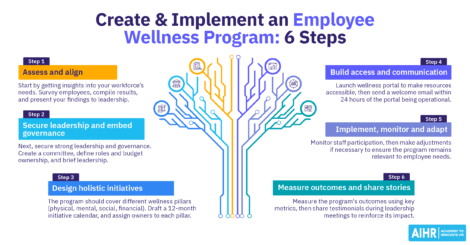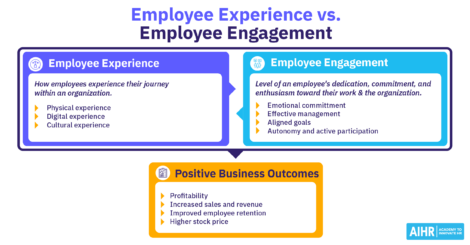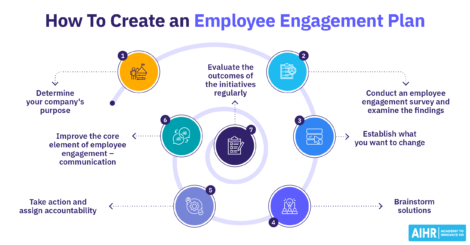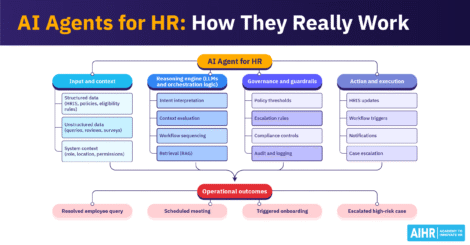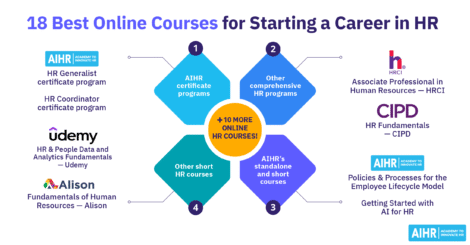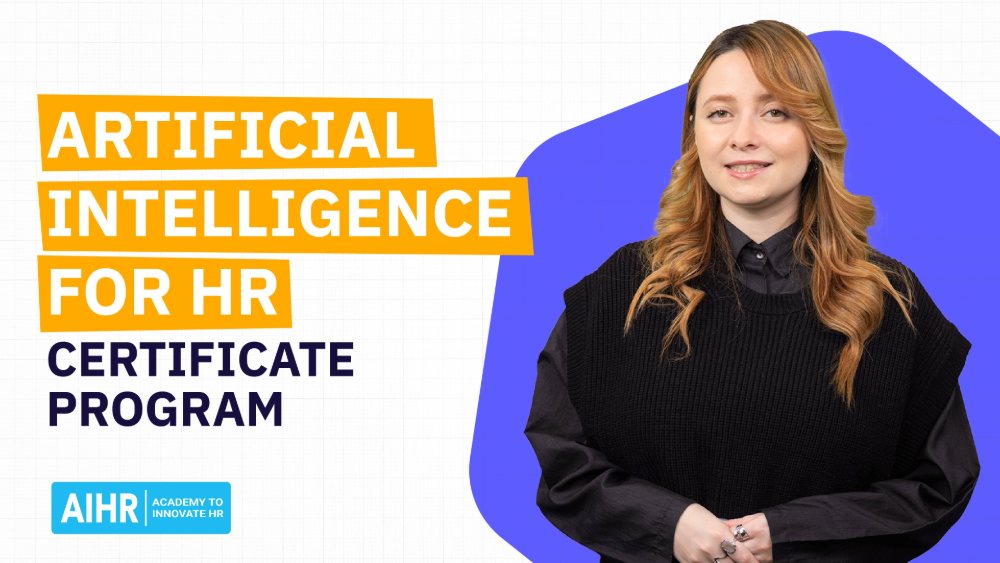The Employee Relations Manager (ER) job description has taken on new importance as organizations face historic lows in employee engagement — only 31% of employees are engaged in their work, with workers under 35 showing the steepest drop. This makes ER Managers crucial in fostering conducive workplaces that boost morale and retention.
This article discusses the role of an ER Manager, what makes them important in today’s work environment, and the skills and qualifications you need to become one.
Contents
What is an Employee Relations Manager?
What does an Employee Relations Manager do?
Employee Relations Manager job description
Employee Relations Manager qualifications and skills
The importance of Employee Relations Managers
Average Employee Relations Manager salary
AIHR certificate programs to take
What is an Employee Relations Manager?
An Employee Relations Manager is an HR professional who helps maintain a positive, productive work environment. They act as the link between employees and leadership, often creating programs to boost morale.
Most ER Managers start in general HR roles like HR Generalist or Recruiter. After gaining experience in conflict resolution and labor laws through mid-level roles, they step into this position (usually after at least years in HR). From there, they can move into senior leadership roles like Director of HR Operations or Senior HR Manager.
What does an Employee Relations Manager do?
An ER Manager develops and implements employee relations programs, resolves disputes, investigates employee grievances, and counsels and trains managers on best practices. They also assess employee feedback for insights into workplace concerns, make relevant recommendations, and help their company maintain compliance with labor laws.
Additionally, they frequently oversee union negotiations and performance management procedures. They aim to provide a balanced, respectful, and productive workplace consistent with company values and laws. They usually lead the Employee Relations or People and Culture team and work closely with HR, legal, and department heads to apply policies fairly.
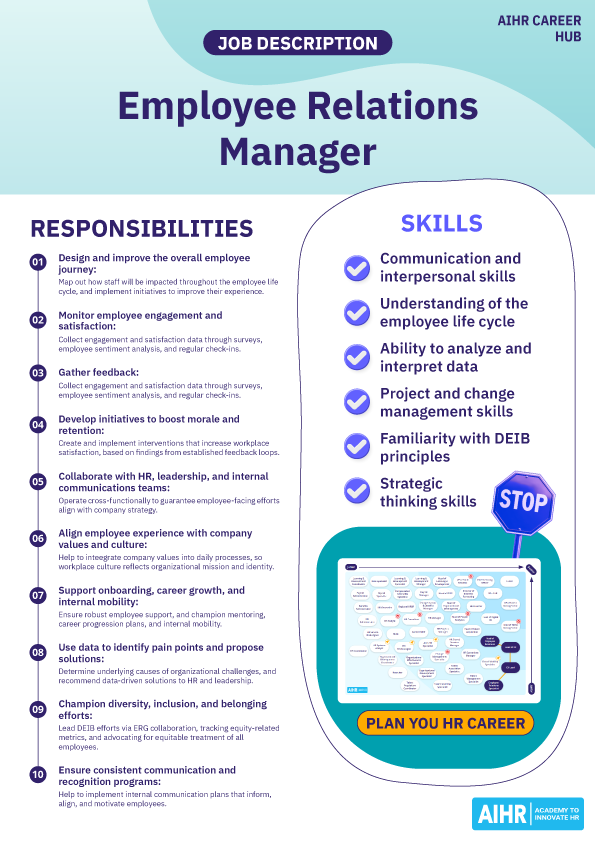
Employee Relations Manager job description
Here’s an overview of an ER Manager’s typical responsibilities:
Design and improve the overall employee journey
An ER Manager maps out how staff will be impacted throughout the employee life cycle and implements initiatives to improve each touchpoint and create a positive employee experience. This includes onboarding, performance appraisals, and promotions, all the way to their exit.
Monitor employee engagement and satisfaction
They collect engagement and satisfaction data through surveys, employee sentiment analysis, and regular check-ins. The goal is to identify and proactively address trends before dissatisfaction leads to disengagement or turnover.
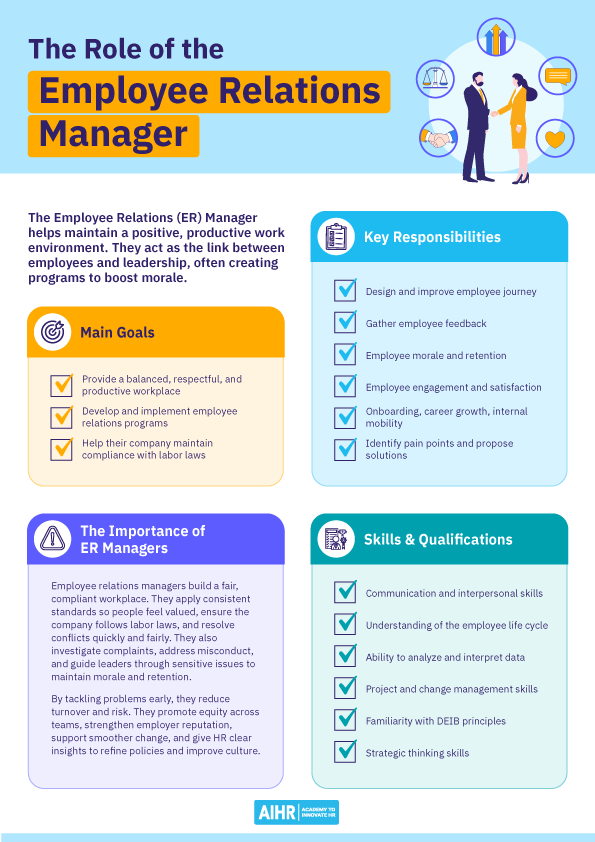
Gather feedback
They maintain structured feedback loops through pulse surveys, stay interviews, and focus groups to understand employees’ experiences. They gather this feedback to help create an HR strategy that drives continuous improvement.
Develop initiatives to boost morale and retention
Based on their findings from the feedback loops they establish, ER Managers create and implement interventions that increase workplace satisfaction (e.g., wellness programs, recognition programs, flexible work policies, or peer appreciation).
Collaborate with HR, leadership, and internal comms teams
ER managers operate cross-functionally to guarantee employee-facing efforts align with company strategy. This coordination helps facilitate consistent messaging, timely interventions, and leadership accountability.
Master employee relations to benefit your workforce and company
To optimize employee relations and improve EX, you must listen actively to feedback, address concerns fairly, and design initiatives that strengthen trust and engagement.
✅ Master the three elements of effective people management
✅ Learn about the strategies you can use to become an effective communicator
✅ Build trust with others by thoroughly preparing for your conversations
✅ Discover the six stages of a feedback session and how to deliver actionable feedback
Learn at your own pace with the online HR Generalist Certificate Program.
Align employee experience with company values and culture
They assist in integrating company values into daily processes and behaviors, so the workplace culture reflects the organization’s mission and identity. This may include value-based recognition programs or decision-making systems.
Support onboarding, career growth, and internal mobility
ER Managers ensure robust employee support during their employment. They may also champion mentoring, career progression plans, and a transparent internal mobility process to promote employee growth and retention.
Use data to identify pain points and propose solutions
By reviewing exit interviews, trends in performance, absenteeism, and engagement scores, ER Managers determine underlying causes of organizational challenges and recommend data-driven solutions to HR and leadership.
Champion diversity, inclusion, and belonging efforts
ER Managers may lead DEIB efforts by collaborating with ERGs, tracking equity-related metrics, and advocating for equitable treatment of all employees within departments, job functions, and backgrounds.
Ensure consistent communication and recognition programs
They help implement internal communication plans that inform, align, and motivate employees. These may consist of routine updates, open discussions, recognition ceremonies, and rewards that support desirable behavior and effort.
HR career tip
ER Managers should regularly cross-reference engagement survey findings with turnover, absenteeism, and performance trends to create more targeted interventions. Use the findings to address issues before they escalate into formal complaints or attrition risks.
Employee Relations Manager qualifications and skills
Here are the typical skills and qualifications required of an ER Manager:
- A Bachelor’s degree in HR, Business, Psychology, or a related field, such as HR, business administration, psychology, or organizational development
- At least five years’ experience in HR, employee engagement, employee relations, or EX roles to demonstrate practical application of ER and HR principles
- A strong understanding of employee life cycle and workplace culture, and how they relate to engagement, retention, and overall performance
- Experience in designing, administering, and analyzing employee engagement surveys and knowledge of Human Resources Information Systems (HRIS) tools
- Excellent communication and interpersonal skills
- Ability to analyze and interpret employee feedback, survey results, and workforce trends data, and translate insights into action
- Project management and change management skills (e.g., managing employee relations initiatives, supporting organizational changes, and building employee trust)
- Familiarity with DEIB principles to foster a fair and inclusive work environment
- Strategic thinking, especially regarding balancing policy, culture, and employee needs
- Ability to align employee initiatives with business goals and culture while maintaining meticulous attention to detail in documentation and processes
- Extensive knowledge of labor laws and HR best practices.
HR career tip
ER Managers should review exit interview insights quarterly and incorporate them into HR planning sessions. Turnover data can uncover cultural or leadership issues early, allowing HR to intervene early and improve retention.
The importance of Employee Relations Managers
Employee Relations Managers help create a fair, respectful, and compliant workplace. They apply consistent standards so all employees feel valued, and ensure the company follows labor laws to avoid legal issues.
They resolve conflicts quickly and fairly, boosting trust and morale. They also handle misconduct, investigate complaints, and address bullying to keep the workplace safe and inclusive. At the same time, they guide leaders through sensitive situations, offering much-needed support. By solving problems early, they help retain talent and reduce turnover.
At the same time, they ensure fair treatment across teams, which reduces bias and improves equity. Their work strengthens employer reputation, supports smooth transitions during change, and provides HR with insights to improve policies and culture.
HR career tip
According to Gallup, only 44% of managers have received formal leadership training. ER Managers should offer targeted training for frontline managers on conflict resolution, employee coaching, and empathetic communication. Well-equipped managers can resolve issues early, minimizing escalation and improving employee satisfaction.
Average Employee Relations Manager salary
Employee Relations Managers in the US earn an annual salary ranging from approximately $89,565 to $120,976, depending on experience, location, and industry. Indeed reports an average base salary of $91,447 annually, while PayScale lists an average salary of $91,156.
Salary.com, on the other hand, indicates an average annual salary of $123,311, with an entry-level ER Manager earning $95,218 and an senior-level one earning $142,041. Additionally, Glassdoor lists an average annual salary of $133,783 for an ER Manager.
AIHR certificate programs to take
- HR Generalist Certificate Program: This program will teach you to engage with staff across all stages of the employee life cycle, and give you a solid foundation in various areas of HR.
- Talent Management & Succession Planning Certificate Program: This program is useful for learning how to support employee growth and align people strategies with business goals.
- Diversity, Equity, Inclusion & Belonging Certificate Program: This program will teach you to spot and minimize bias to make employee relations fairer and more inclusive.
To sum up
Employee Relations Managers enforce policies and create an environment where employees feel heard, supported, and aligned with the company’s values. From resolving conflicts and guiding managers to analyzing feedback and improving engagement, they build a culture of trust and fairness.
Organizations can better support their workforce and stay compliant, inclusive, and competitive by understanding the full scope of an ER Manager’s responsibilities and the skills required to be successful in the role. Whether navigating change, shaping workplace culture, or driving retention, ER Managers can ensure a positive employee experience.


